Cheating the universe of access: social change with tech tools
Presenter: Raewyn Hailes, Access coordinator Central Region, CCS Disability Action (NZ)
Platform Presentation
For Universal Design to benefit the people who need it most a change in attitudes towards pinching mobility parks is needed. Using a mobility parking space without a permit even ‘for just a minute’ can block a disabled person’s access to live life freely. Mobility car parks are an opportunity for people with mobility impairment to have equitable access to the urban environment. But for the able-bodied they are the most convenient vacant car parks around, ideal for 5 minutes or so, with only a moral code to prevent abuse. In New Zealand, continuing high levels of abuse is encouraged by a very low rate of enforcement. While parking wardens might have some authority on the public streets to issue fines – they have no jurisdiction in privately owned car parks.
Qualitative and observational research completed in December of 2016 by CCS Disability Action indicated that levels of parking abuse had not improved in ten years, with abuse rates still unacceptably high, despite increases in fines from $40 to $150 and attempts to grow awareness of the problem.
As the national organisation that issues the permits CCS Disability Action wanted a system that is authentic to its ideal – equality of access for disabled people – and a way to ensure mobility carparks were not being stolen by non-permit holders. Partnering with a specialist app development company, Saferme, CCS Disability Action has been able to develop a world – first crowd-sourced phone application that enables the social enforcement of mobility parks. The tool has become much more and continues to deliver data that helps people to find a carpark and lets Councils and private owners know that their carparks are being abused. It also offers data to Statistic NZ to support the Open Data Program.
Making all communities accessible to very person with a disability is the prize sought, and with Access Aware the goal for The Accessible Journey and Universal Design that works for all people, is closer than before.
